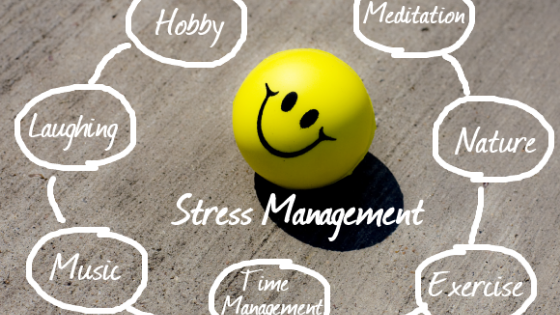Use Your Stress Triggers to help Improve Your Life!

Recognizing a problem is the first step toward solving it. By beginning to identify and understand the sources of your stress, you’ve taken the first step in learning to better manage it. Manage it, not eliminate it. Stress is a fact of life. And that’s OK. If you really want to, you can learn ways to handle it.
Know Your Triggers that Lead To Stress
 Effective stress management starts with identifying your sources of stress and developing strategies to manage them. One way to do this is to make a list of the situations, concerns or challenges that trigger your stress response. Take a moment to write down some of the top issues you’re facing right now. You’ll notice that some of your stressors come from things you try to manage and juggle in a day. When your body breaks down.. it’s telling you something.. but in the mists of it all, it is easier to ignore those signs, or else in our minds we feel like it will just be another thing that we have to deal with?
Effective stress management starts with identifying your sources of stress and developing strategies to manage them. One way to do this is to make a list of the situations, concerns or challenges that trigger your stress response. Take a moment to write down some of the top issues you’re facing right now. You’ll notice that some of your stressors come from things you try to manage and juggle in a day. When your body breaks down.. it’s telling you something.. but in the mists of it all, it is easier to ignore those signs, or else in our minds we feel like it will just be another thing that we have to deal with?
Move Toward Greater Balance, Control,and Participation in Your Life.
Here are 10 things you can do to either reduce your stress level, and/or to be more proactive by acknowledging your triggers. This might sound like work to you, but which work would you rather do every day? The work that causes exhaustion just dealing with your stress daily, or the work to apply healthier habits to build a stronger mindset taking back control of your life. I know which one I would chose.. and I hope you will join me too.
1. Exercise
Working out regularly is one of the best ways to relax your body and mind. Plus, exercise will improve your mood. But you have to do it often for it to pay off. So how much should you exercise every week?
Until you start to believe that exercise can really make a difference, start off with something versus nothing mindset. So if you do nothing now, start off by taking a brisk walk 20 to 30 minutes a day. Don’t bring your phone to take calls, or look on social media, but instead you can put your phone on airplane mode, to then listen to some music that inspires you. Take deep breaths! Walk in the moment.. acknowledge that you are walking and feel, recognize, the calmness around you.
If you already workout, and understand and feel the benefits of exercise, you can check Tip #1 off your list and just make sure to at least get in 4 to 5 times a week. Even if 2 of those days are just taking a walk as I mentioned above.
2. Relax Your Muscles
When you’re stressed, your muscles get tense. You can help loosen them up on your own and refresh your body by:
Stretching ( this is like giving yourself a massage. Take deep breaths as you move through the stretching)
Enjoying a massage ( Choose a relaxing massage. Which means to find a person that can deliver the right pressure for you to relax)
Taking a hot bath or shower
Getting a good night’s sleep
3. Deep Breathing
Don’t and I mean DON’T under estimate the power of breathing. Stopping and taking a few deep breaths can take the pressure off you right away. Add in closing your eyes while doing it, and you will instantly feel refresh. You’ll be surprised how much better you feel once you get good at it. Just follow these 5 steps:
Sit in a comfortable position with your hands in your lap and your feet on the floor. Or you can lie down. When I use to work in Corporate America, don’t laugh, but I use to do this in a bathroom stall for privacy. lol
Close your eyes.
Imagine yourself in a relaxing place. It can be on the beach, in a beautiful field of grass, or anywhere that gives you a peaceful feeling.
Slowly take deep breaths in and out.
Do this for 5 to 10 minutes at a time.
4. Eat Well
Eating a regular, well-balanced diet will help you feel better in general. It may also help control your moods. Your meals should be full of vegetables, fruit, whole grains, and lean protein for energy. And don’t skip any. It’s not good for you and can put you in a bad mood . You should be eating every 3 hours to keep your insulin regulated and metabolism going at a healthy pace.
For those doubters out there. I’m going to dare you to do the following:
On day one, eat your lunch the way you would eat it normally. Try not to alter anything now that you are going to read how to eat on day 2. Be truthful. About 20 minutes after you are done eating, write down how you feel. Your energy, awareness, fullness or lack thereof. Now take another day where you eat a healthy lunch. This would consist of low fat carbs, healthy fats, protein and your beverage would be water. You will eat slowly, chew more before swallowing. About 20 minutes after you are done eating, write down how you feel. Your energy, awareness, fullness or lack thereof. Compare how you felt from both days to prove to yourself how healthy eating can really improve your mood and overall good healthy.
5. Slow Down
Modern life is so busy, and sometimes we just need to slow down and chill out. Look at your life and find small ways you can do that. For example:
Set your watch 5 to 10 minutes ahead. That way you’ll get places a little early and avoid the stress of being late.
When you’re driving on the highway, switch to the slow lane so you can avoid road rage.
Break down big jobs into smaller ones. For example, don’t try to answer all 100 emails if you don’t have to — just answer a few of them.
6. Make Time for Hobbies
This is going to be a hard one if you just thought in your mind.. “Hobbies!” “Who has time for hobbies”!!!! The answer is YOU DO! You need to set aside time for things you enjoy. To allow your mind to see, hear, smell, taste something different than your hectic schedule you live daily. Try to do something every day that makes you feel good, because I promise you that it will help relieve your stress. It doesn’t have to be a ton of time — even 15 to 20 minutes will do. Relaxing hobbies include things like:
Reading
Knitting
Doing an art project
Playing golf
Watching a movie
Doing puzzles
Playing cards and board games

 stressed after coming home from a long day of work, picking up my kids from daycare, I felt so stressed that I had to figure out giving them time, making dinner, etc.. and what I did to take that situation back in control…
stressed after coming home from a long day of work, picking up my kids from daycare, I felt so stressed that I had to figure out giving them time, making dinner, etc.. and what I did to take that situation back in control…

